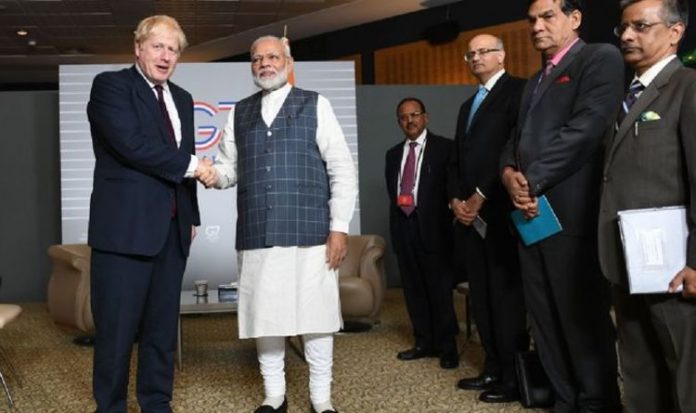Liz Truss, the International Trade Secretary, recently concluded a five day trip to India, where she signed an enhanced trade partnership with Piyush Goyal, the commerce and industry minister. The agreement marks a further step towards securing a comprehensive free trade deal with the Asian superpower. Gaining access to India’s internal market is notoriously difficult due to trade protections imposed by the Government.
For many decades after independence, India equated self-rule with self-sufficiency and independency.
Only at the end of the twentieth century did New Delhi begin to open its markets to foreign competition.
It has since signed trade deals with Japan and ASEAN, but not with any Western state.
Former MEP Daniel Hannan believes that the UK could become the first Western country to penetrate Indian markets on account of the close affinities between the two states.
He writes: “Yet if any Western country is positioned to have a mutually beneficial trade deal with India, it is surely the UK, home to 1.5 million people of Indian descent.
“Many of our most successful entrepreneurs are of Indian background, and British brands from Jaguar cars to Tetley tea have attracted Indian buyers.
READ MORE: Macron enraged EU leaders over Brexit: ‘Very irritating!’
Any trade deal would therefore be mutually beneficial and provide a huge boost to the service industries, as well as to the technology and engineering sectors.
He explains: “But, though tariff reduction is always and everywhere desirable, the bigger gains will be in the liberalisation of legal and financial services, facilitated investment and the mutual recognition of qualifications.
“Tech, coding and engineering are among the many instances of where our economies are naturally complementary.”
While acknowledging the complex and at times strained nature of UK-Indian relations, Mr Hannan concludes: “Yet there is also an unmistakeable affinity and affection between the two countries – an affection that the free world may yet have cause to appreciate.”







